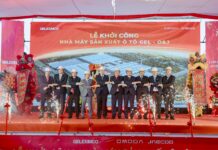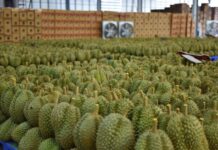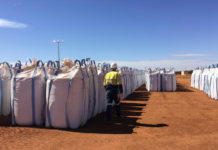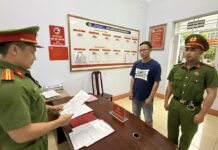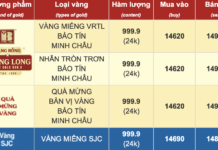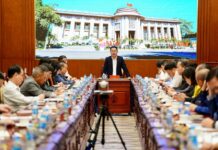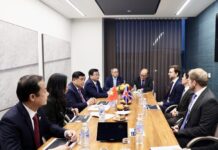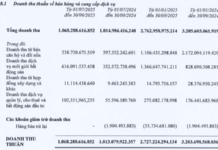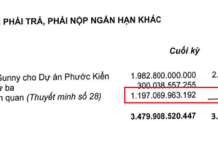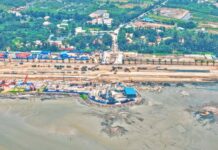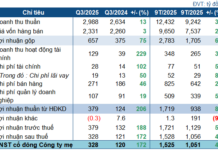Speaking at the “Training Course on Knowledge and Skills in International Economic Integration, Import-Export Procedures, E-Commerce, and Logistics,” Ms. Phuong Thi Lan Phuong, a senior expert from KTP FTA Consulting and Investment Joint Stock Company, shared that Vietnam is among the 15 countries with the largest trade flows globally.
From being a minor exporter, not featured in the top 15 exporting partners before 2013, Vietnam has risen to 11th place in the ranking of the world’s top 15 exporters by 2023. Vietnam is considered the surprise package in world trade.
Vietnam is one of the four countries, alongside India, Canada, and China, with the fastest annual export growth rate globally between 2019 and 2023. Vietnam ranks 15th in terms of the largest import turnover worldwide.

According to Ms. Phuong, this remarkable achievement is attributable to the Vietnamese government’s strong determination and efforts in international economic integration. As of now, Vietnam has signed 16 free trade agreements (FTAs) and is the most open country globally, with nearly 60 partners.
By participating in these FTAs, Vietnam has elevated its status, upgraded, and amended many domestic laws. The opportunities presented by the FTAs include helping Vietnam increase its export turnover by reducing tariffs, lowering trade barriers, and facilitating market access to partners.
“We are ready to use external forces to promote internal reform. It is expected that FTAs will touch on more fields, although the initial stage may be challenging. Still, in the long run, it will bring about comprehensive innovation for Vietnam. Moreover, FTAs have continuously attracted FDI to Vietnam, creating jobs for workers,” emphasized Ms. Phuong.
Importantly, the commitments within the FTA frameworks regarding transparency, equal treatment, procedural facilitation, intellectual property, and the environment may initially increase costs for businesses. Still, they are beneficial in the long term as Vietnam’s standards gradually approach world standards.
Furthermore, the FTAs are helping Vietnam create a more favorable investment and business environment and simplify import-export regulations for enterprises. Some negotiating experts argue that we are using external pressure from these commitments to promote better domestic reform, moving closer to the world. As a result, Vietnamese goods will more easily meet the stringent standards of foreign markets.
Alongside the benefits that FTAs bring, the challenges for Vietnamese businesses and the economy are significant. There is increased competitive pressure due to market opening to various foreign products.
While we are strong exporters, 70% of our export turnover belongs to FDI enterprises in Vietnam. According to OECD data from 2024, the DVA (Domestic Value Added) index, which indicates the value-added in Vietnam’s total exports, remains modest at 52%.
The utilization rate of C/O granted under FTAs is still low, with many cases of exports enjoying preferences but failing to meet rules of origin. Vietnam’s participation in global value chains remains relatively low, mainly involved in processing and assembly, while higher-value-added stages are conducted in their home countries…
“The value-added achieved in our trade is not high, although exports are large. We rely too much on foreign input sources, and any global fluctuations will significantly impact businesses,” Ms. Phuong noted.
Therefore, to better utilize FTAs, Ms. Phuong suggested that enterprises need to deeply understand them. Since FTAs are complex, it is challenging for businesses to comprehend them, so relevant agencies should enhance training on FTAs and import-export issues. Enterprises and associations should also strengthen their roles and voices with the government regarding FTA implementation and propose solutions to difficulties to better take advantage of FTAs.
The “Training Course on Knowledge and Skills in International Economic Integration, Import-Export Procedures, E-Commerce, and Logistics” is part of the technical support activities under the Special Fund for the Mekong-Lancang Project. The course will be held from December 3 to December 6 and is organized by the Management Board of the Technical Support Project for Mekong-Lancang, Ministry of Industry and Trade.
The course focuses on: Updating trends in economic integration, trade-investment, FTAs, and non-tariff barriers to international trade; Import-export procedures, international purchasing, and payment; Logistics activities and comprehensive supply chain management in the current context; The development of e-commerce in the region and the world, new trends, and e-commerce commitments in Vietnam’s FTAs.
The aim is to enhance the capacity of officials from management agencies, associations, enterprises, institutes, and schools in the Mekong-Lancang region. The training will provide participants with valuable knowledge and skills to improve their work performance and contribute to the effectiveness of international economic integration and promote import-export activities between the countries in the Mekong-Lancang region and the world.

